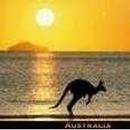As per first post, but West Norse =/= Modern Icelandic, as per this site:
OLD NORSE FOR BEGINNERS.
Haukur Thorgeirsson has a website devoted to the study of Old Norse, and it looks quite good. Along with the lessons he has sections on pronunciation (standard and alternative), runes, links, and other related matters, not to mention a few Old Norse cartoons. Here's his discussion of "Old Norse? Which Old Norse?":
The term Old Norse refers to the language spoken in Scandinavia and Scandinavian settlements from about 800 to about 1350. It should be obvious that it was not exactly the same language over a vast area and 550 years. It is usually split into two groups, which are then split into two dialects.
West Norse
Old Icelandic /Old Norwegian | East Norse
Old Danish /Old Swedish |
Of all these, the dialect which preserved the most interesting literature is Old Icelandic.
The term 'Old Norse' is sometimes used to mean specifically what we here call 'West Norse' or what we here call 'Old Icelandic'. It is sometimes applied to Icelandic up to the 16th century.
Via GR Burgess's Old Norse Page at odin.bio.miami.edu/norse (itself worth a look), via mirabilis.ca
Any idea how related Old Icelandic is from the way people speak today? Is it like reading Beowulf or the Canterbury Tales (for someone who speaks modern Icelandic)? I know that in Laxness' excellent book "Independent People" illiterate peasants living in the 50s are portrayed as being able to recite the sagas by memory.
The pronunciation has changed a great deal, but the spelling is conservative, so I suspect it's more like reading Shakespeare. I'd love to hear from an Icelandic reader about this, though.
[ cont'd below ]


![]() www.languagehat.com/archives
www.languagehat.com/archives